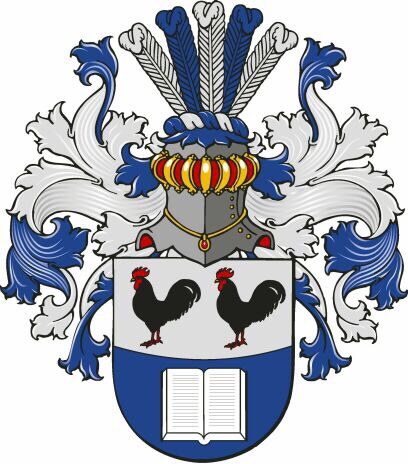
Albert A. van Daalen stood at the lectern, gazing out at the eager faces of his students at the NCOI University of Applied Sciences in the Netherlands. His passion for the humanities and social sciences had driven him to educate countless minds on the intricacies of human culture, and societal interactions. Yet, a growing realization began to take root within him —a realization that his true calling lay beyond the confines of the most significant characteristics of the traditional epistemology, philosophy and theology.
Van Daalen had always been a man of profound curiosity. His lectures often transcended mere traditional academia, delving into the very essence of what it meant to be human. He questioned how literature reflects social values, how art conveys human emotions, and how history influences contemporary thinking. But most intriguingly, he pondered the profound influence of religious and ideological beliefs on people’s perceptions, judgments, and behaviours.
One evening, as he strolled along the Mediterranean beach, Van Daalen’s thoughts crystallized into a clear vision. He imagined a small research institute—an independent, nonprofit entity dedicated to exploring the interface of religious and ideological affiliations and their impact on society. This institute would employ an interdisciplinary approach, integrating insights from various fields to answer existential questions that had long fascinated him.
The Birth of Universitas Humanae Vitae
With this vision in mind, Van Daalen embarked on a new journey. He transitioned from his role as a lecturer to become a dedicated researcher, founding his ‘Universitas Humanae Vitae’.
Universitas Humanae Vitae was born with a specific focus: to conduct scientific research on how religious and ideological worldviews influenced human behaviour, particularly in the context of legal and democratic principles and human rights. Van Daalen was especially interested in the way in how these factors impacted social security such as housing needs – a fundamental aspect of human welfare.
The Interdisciplinary Approach
Van Daalen believed that understanding complex human phenomena required more than just a single perspective. At Universitas Humanae Vitae, research started with an existential question, such as, “How do religious beliefs influence people’s attitudes toward legal and democratic principles and human rights?” From there, he integrates perspectives from various disciplines, including sociology, psychology, philosophy, political science, and religious studies.
This interdisciplinary approach allowed Universitas Humanae Vitae’s research to analyse questions from multiple angles. Various methods, tools, concepts, and theories are used to gain a comprehensive understanding. For instance, a study might combine statistical analysis of social behaviour with philosophical discussions on cultural values and legal codes as well as in-depth interviews with individuals from different religious, ideological, or worldview backgrounds.
Unveiling Insights
Universitas Humanae Vitae’s research soon began to yield fascinating insights. One study revealed that individuals with strong ideological affiliations were more likely to support laws and democratic principles that aligned with their beliefs. However, these same individuals often struggled with laws and democratic principles that challenged their beliefs. This finding has profound implications for policymakers seeking to apply those laws and democratic principles.
Another research project explored the role of religious narratives in shaping people’s attitudes toward human rights. Universitas Humanae Vitae’s research discovered that religious teachings can either promote or hinder human rights, depending on how they are interpreted and applied.
Impact on Society
Universitas Humanae Vitae is not just a research institute; it is a testament to the power of curiosity and the pursuit of knowledge. Through its interdisciplinary approach, Universitas Humanae Vitae bridge the gap between diverse perspectives, offering a deeper understanding of the complex interplay between religion, ideology, and human behaviour.
The work of Universitas Humanae Vitae now extends beyond academic circles. By publishing its own research as well as that of other institutes, Universitas Humanae Vitae aims to be a beacon of knowledge and a catalyst for awareness-raising of the influence of religious and ideological affiliation and worldview on people’s perception, judgment and behaviour, and the possible impact on legal and democratic principles and human rights —especially with regard to social security such as housing needs.
When Van Daalen looks back on his journey from lecturer to researcher, he feels a deep sense of fulfilment. UniversitasHumanae Vitae is a testament to his unwavering belief in the importance of exploring the existential questions that define our humanity.
AdZ
Universitas Humanae Vitae is founded by Alvadar

